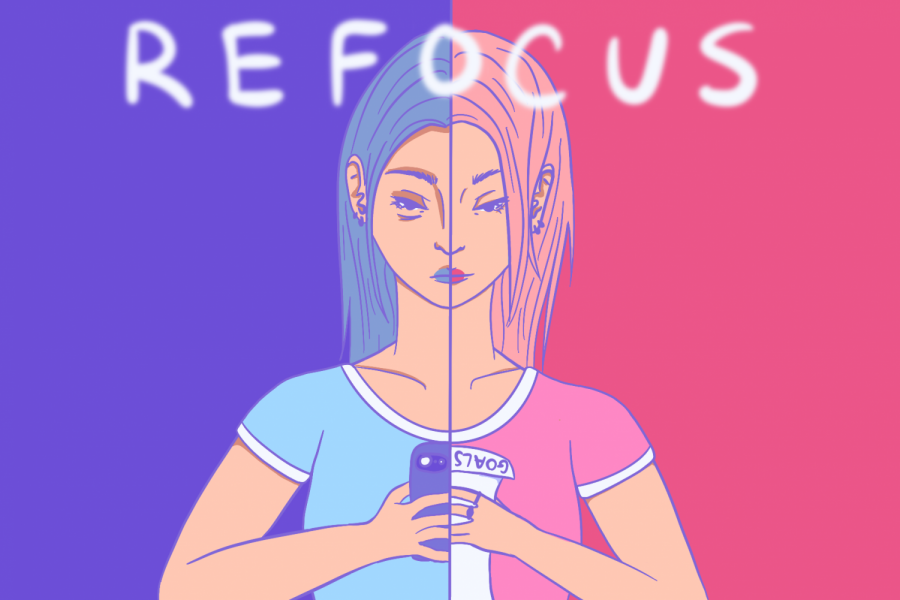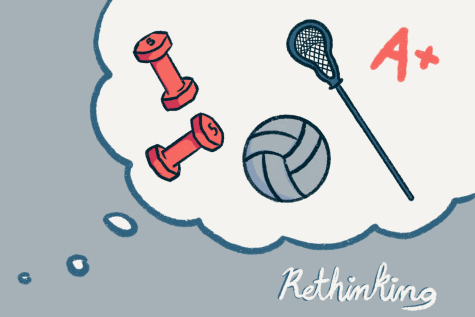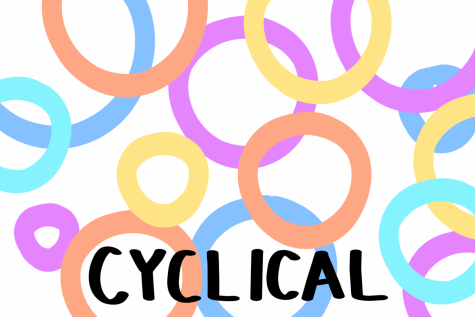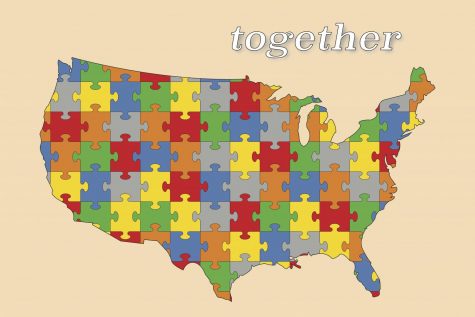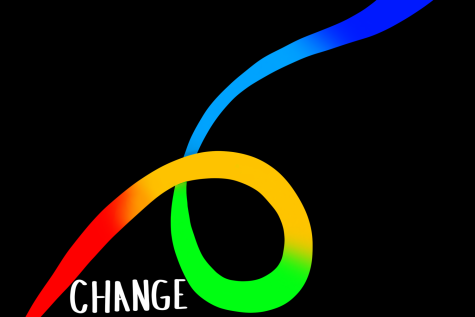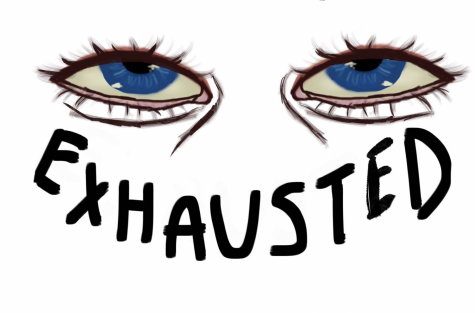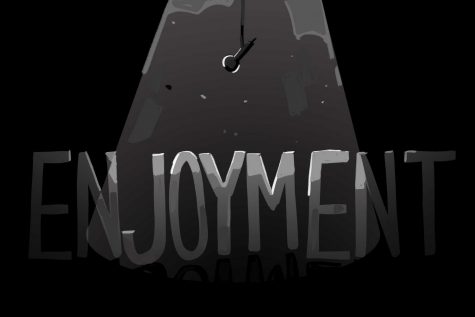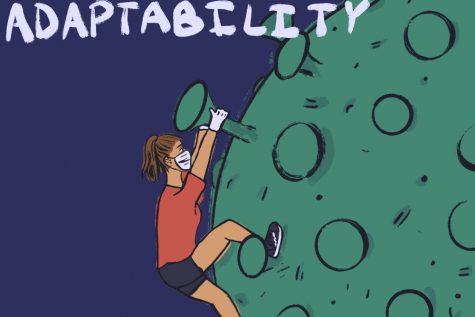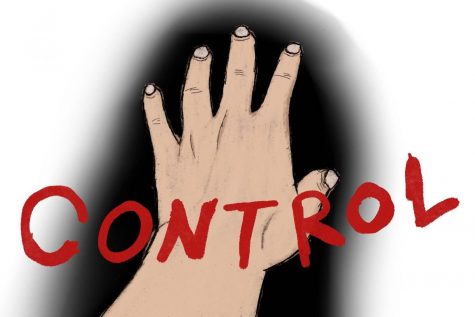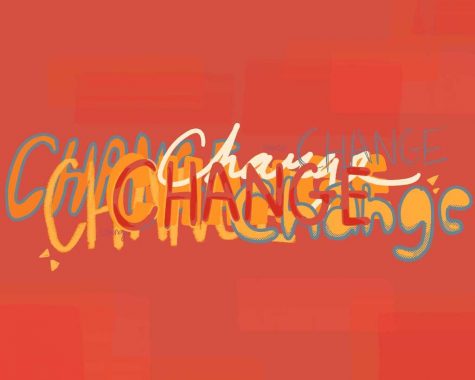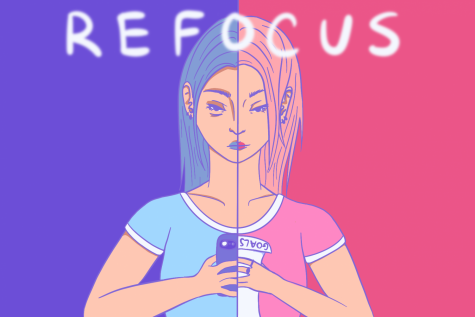Refocus – Lila Shepard
On the left side of the image, the girl is looking at her phone. On the right side, she is looking at her list of goals. The cool colors on the left half portray a gloomier feeling vs. the warm tones on the right half.
A cool breeze carried the smell of newly blooming flowers and the sound of birds singing. It was a normal spring day except for the halls buzzing with excitement and anticipation. Everyone was watching the clock, waiting for the bell to signal the end of a school day and the beginning of spring break. Yeah, we had heard news reports about a new virus in China, but surely the virus wouldn’t affect us here in the United States, let alone Kirkwood.
When KSD announced students would not return to school, I was excited to have a longer spring break like many others. If only I had known what the future had in store for me. Before I realized it, school was fully online through a new app called Zoom, family game nights became more frequent, dining at restaurants became a thing of the past, masks must be worn at all times and suddenly I was getting scheduled for fewer shifts at work.
I didn’t understand the virus at first, but soon enough, my dad started treating COVID-19 patients, working as a perfusionist at St. Louis Children’s Hospital. I became worried as more information and research emerged about the virus. I saw how other countries were dealing with the spread, and I watched as the pandemic peaked globally, all from the comfort of my couch. I soon began to question the safety of my own home: What if my dad got the virus from work and brought it home? What if my mom gets it? What if I contract coronavirus and my body isn’t strong enough to fight it off? The pandemic spreading beyond the walls of my house seemed more real than ever before.
The world-stopping virus kept us all confined to our houses, and human beings can only be isolated for so long. With the lack of human contact came an increase in communication through social media. Constantly seeing what others were doing online made me feel left out and insecure about how I was spending my quarantine time. My consumption of screen time led me to become unmotivated and less talkative.
Friends checking in with each other or those yearning for human interaction used apps such as Snapchat, Instagram, FaceTime or Zoom. While social media became one of the main ways to communicate, it can also be harmful to a person’s self-image, including my own. I didn’t look like the girls I saw online, my style didn’t match theirs and I wasn’t as fit as they looked.
Eventually, I had enough and decided to take back control over my life. I realized I was creating stressful situations by procrastinating deadlines instead of doing my homework when assigned to me. Eliminating distractions like social media and blocking out the extra noise is what helped me focus on becoming the best version of myself.
Creating a routine and sticking to it every day was out of the question for me. I instead needed to have five or fewer goals to achieve each day. That way, I would not be overwhelmed with long to-do lists and could feel accomplished and more motivated upon completing those goals.
Next, I found that being active every day made me feel less sluggish and boosted my mood. Getting my blood pumping by walking my dogs, doing a workout video or even playing “Just Dance” with my sister made me feel awake. Along with getting active, I tried eating healthier. I made a conscious effort to grab apples and peanut butter instead of a Pop-Tart and Nutella with pretzels. Creating healthy habits made me feel like I had authority over my life.
The pandemic helped me realize who I am. It allowed time for me to learn what is important to me. Though at first, I may have struggled, I have quarantine life under control now. I am no longer so concerned with others’ opinions on me and I can understand what I need to do to refocus and reach my goals.

